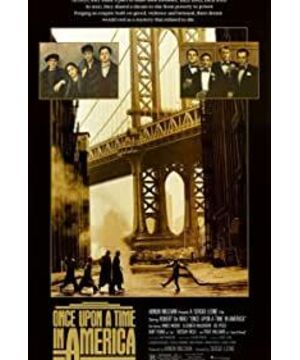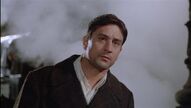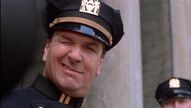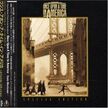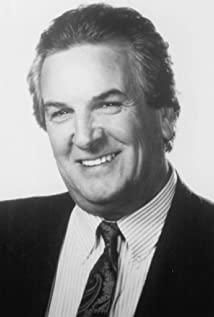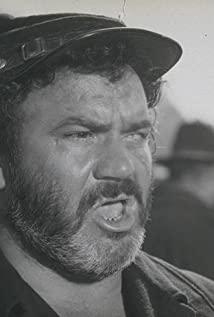It is said that the first release of the film, which took the director twenty years of energy, was "a flood of bad reviews". Even though it was later regarded as a "classic" and became a film school textbook, when I saw it on TV, it was introduced to the public like this: a film "about growing up and betrayal". That said, the film's categorization doesn't really fit what it's trying to say. Unfortunately, movies always have to be classified in a certain way, just as people have to be classified in a certain way. Categorizing people according to certain stereotypes creates stereotypes, and categorizing movies according to certain stereotypes often misleads the audience's attention. Ostensibly, the film is about a criminal gang going from birth to disintegration. In essence, the story reveals two fundamentally divergent attitudes to life through the collaboration and final separation of the two protagonists "Noodles" and "Mai Da" in the film. These two fundamental differences are the "watershed" of human nature.
"Noodles" is one of those little gangsters we see on the street who likes to live an unfettered life, and crime is a livelihood arranged by his nature and destiny. However, what is different from the criminals we are familiar with who do all kinds of evils and who are ruthless: 1. He will be emotional. For example: He will really fall in love with a woman. 2. He did something wrong. For example: he will not break the rules of the road for the sake of profit; he refuses to make money easily but must be subject to the change of human status. In short, he is one of the criminals who owns and sticks to his own beliefs and principles of conduct. And this created a fundamental disagreement between him and his "big brother" Mai Da. and thus drifting away from each other. Finally, the partner Mai Da, who obeyed only one logic in his heart—that is, the logic of maximizing profits—played a trick to hide the sky and the sea, killed the original accomplices, took their share, changed himself, and entered. Politics, eventually became ministers. However, Noodles who escaped death was burdened with the guilt that he thought he had betrayed his friends and hid for 30 years. Thirty years later, Noodles and Mai Da met again. Mai Da told the truth and asked Noodles to kill him. Noodles refused, saying, "Our difference lies in the way we see the world."
A narrative is enough to be called a "classic" because what it tries to reveal are those life experiences that are constantly repeated and called "motifs" for the entire human existence. If this film is just telling people a story that happened in the American underworld, then the cost of consuming the director's energy for 20 years is really not worth it. The director actually wants to use twenty years of hard work to tell people a truth: the criminal is not necessarily a gentleman, if he keeps his word!
On the other hand, looking at the society we live in today, we have to painfully admit the fact that McLaren's logic is prevalent, it is popular both at the bottom of the society and at the top of the society. No one really believes in anything, there is nothing to believe in, only the maximization of interests is the only goal pursued by the opportunists and their logic is unimpeded in society. Our society has exiled the "gentlemen", and what remains are the philistines everywhere! .
It is said that our ancient man Yang Zhu burst into tears when he saw the wrong way. Because the fork in the road can be south or north, once you choose the south, you will be farther and farther away from the north. While our society has chosen a path of "commodity economy", it has also in fact chosen a mercenary ideology. In other words, we collectively chose a path of no return to become villains and philistines. Although our "main theme" sings high-pitched all day long, everyone knows in their hearts that in today's society, what kind of people will be popular, and what kind of people will only die.
What does this mean for our society? It means that each of us is exposed to infinite possibilities, that everyone and everything we encounter on a daily basis is untrustworthy and has some kind of trap. Who other than a natural adventurer would feel comfortable in such a social ecology? Having a minimum level of social trust is the minimum guarantee for everyone's sense of security. Without a minimum level of social trust, everyone will eventually live in panic. And when everyone lives in fear, everyone will become everyone's enemy. In the long run, a huge humanitarian disaster will not be far away.
View more about Once Upon a Time in America reviews


